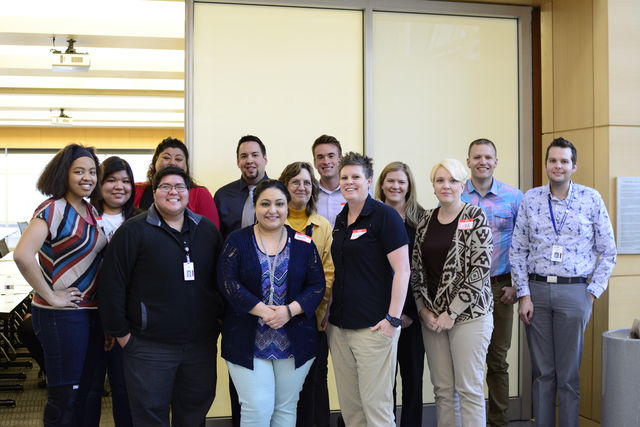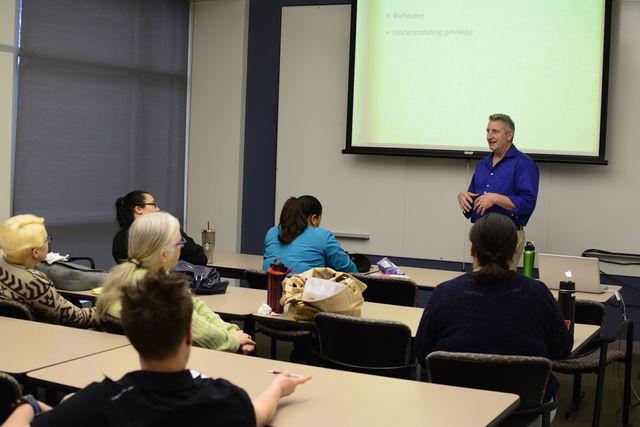Healthcare can be a complex and confusing topic, particularly for those in the LGBT community. To promote understanding, the U School of Medicine hosted a two-day healthcare provider summit focusing on LGBT issues.
The third annual summit was held from Feb. 26-27 and was the first time the school of medicine sponsored the event entirely.
Andy Rivera, a coordinator in the U’s Department of Neurology, organized and founded the summit.
“There’s a lot of misconceptions that people have with healthcare in the LGBT community,” Rivera said. “We want people to understand you can treat LGBT patients like everyone else and [that] they deserve the same level of care.”
The summit was broken down into various sessions led by medical professionals. Friday’s events covered caring for LGBT adolescents, HIV and other medical risks and sexual orientation’s effect on mental health. Saturday’s events were centered on transgender issues such as gender dysphoria treatment, transition surgical options and featured a transgender patient panel.

The summit’s keynote speaker was Madeline Deutsch, director of the University of California San Francisco’s Center of Excellence for Transgender Health. Deutsch, a transgender woman and lesbian, has personal insight into many of the issues LGBT people encounter. Deutsch received her medical degree at Rosalind Franklin University and focuses on transgender issues such as hormone treatment, cancer risks and healthcare access for underserved populations.
Hollie Hancock, a mental health therapist and U alum, gave the summit’s opening presentation on considerations to take into account when working with LGBT individuals.
“There is a shortage of healthcare providers across the board who have competency … to work with those in the LGBT population,” Hancock said. “There’s not any incoming training for U faculty and staff about cultural competency or sensitivity when working with LGBT students.”
Hancock shared her firsthand experiences at the U and other schools where she witnessed the lack of understanding and education on LGBT issues. She says while the U has made great strides in improving, there is still a long way to go. Hancock, a member of the Church of Jesus Christ of Latter-day Saints, also discussed the LDS culture’s impact on the LGBT community in Utah.
“It breaks my heart that the age for suicide in LGBT youth is getting younger,” Hancock said. “Things as simple as personal, family and social acceptance can change everything.”
Hancock led a group discussion on how healthcare providers can treat patients like people instead of labels. Healthcare providers in attendance voiced their own concerns that despite good intentions, they do not always understand the new acronyms and sexuality labels, or how to respectfully ask questions.
In 2013, Rivera said he noticed a disconnect between the LGBT community and healthcare providers. Rivera specifically wanted the transgender community to understand the resources available to them, and organized the first healthcare summit as part of a transgender community conference. The following year, the Utah Pride Center and the U School of Medicine jointly held the summit on transgender health concerns. This year’s event, held in the Health Sciences and Education Building, was originally scheduled for December 2015 and broadened the topics presented to include all LGBT health care concerns.
“The outcomes we hope to get from this conference are really that we get educated providers and educated students,” Rivera said. “We want to get everybody involved; you’re not alone.”
m.bateman@dailyutahchronicle.com
@mbatman72


